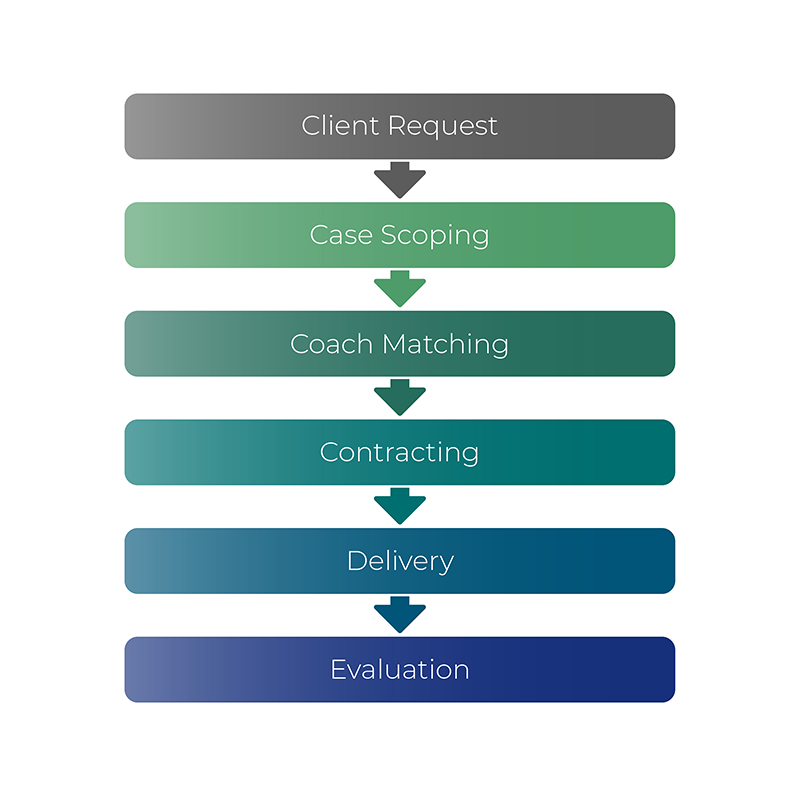
COACHING ENGAGEMENT MANAGEMENT PROCESS
Each coaching engagement follows our six-step Coaching Engagement Management process that delivers a shorter and more effective coach matching process, clear expectation-setting between all stakeholders, and efficient management and reporting engagements.

COACHING ENGAGEMENT MANAGEMENT PROCESS.
Each coaching engagement follows our six-step Coaching Engagement Management process that delivers a shorter and more effective coach matching process, clear expectation-setting between all stakeholders, and efficient management and reporting engagements.
SYSTEMIC COACHING SUPPORT
Our Partner Client methodology adds value at the organizational level by providing Clients with:
- Progress tracking data on each engagement, without breaching individual confidentiality.
- Insights on trends and patterns on multiple coaching engagements to inform the organization’s broader learning and development agenda.
- Continuous evaluation of the design of coaching engagements and the cultural fit of our coaches.
SYSTEMIC COACHING SUPPORT
Our Partner Client methodology adds value at the organizational level by providing Clients with:
- Progress tracking data on each engagement, without breaching individual confidentiality.
- Insights on trends and patterns on multiple coaching engagements to inform the organization’s broader learning and development agenda.
- Continuous evaluation of the design of coaching engagements and the cultural fit of our coaches.

THE BENEFITS OF CEC EXECUTIVE LEADERSHIP COACHING INCLUDE:

World-class quality coaching & consultancy from our network of over 70 coaches in North America, EMEA and APAC regions

Reduced administrative burden of managing coaching programs

Increased visibility & information flow about coaching engagements across the organization

All our coaching is specifically designed to enhance the coaching ripple effect, improving results at the individual, team and organizational level.

Consistency across multiple coaching engagements & geographies

Reduced time spent in chemistry meetings and coach selection processes

Insights created from learning across multiple engagements that inform wider OD and talent strategies
We categorize typical coaching engagements based on the outcomes achieved, and we tailor each engagement to meet the client’s unique needs, goals, business drivers and culture.
Senior Leadership Advisor Coaching
Our highest-level coaches work alongside your most senior leaders straddling the role of coach, consultant, and trusted advisor. This approach provides the flexibility to undertake whatever work is most pressing, while at the same time undergoing more long-term development.
This approach is suitable for leaders who are managing an extensive and complex set of demands and want on‐call support to manage both specific challenges and the less foreseeable situations thrown up by change and transition. It is designed for leaders who aim to successfully lead integrated, high performing teams in a networked global organization.
It is particularly useful during transition to C-level and global roles, and during times of change associated with business transformation, growth, turnaround, M&A and global expansion.
Developmental Executive Coaching
Encompasses the development of the mindset, adaptive capabilities, agility, and perspective taking capacity required for effective leadership and organizational success in a fast moving, unpredictable environment. It is aimed at enhancing the coachee’s ability to meet current and future challenges more effectively via the development of more complex understanding of the self, others and the systems in which the coachee is involved. For this reason, it is sometimes called Transformational Coaching. It is referred to in leadership literature as Vertical Development.
Coaches delivering Developmental Coaching require significant formal training, a deep understanding of psychological concepts, (including Adult Development Theory) in addition an appreciation of the dynamics of Complex Adaptive Systems.
Performance Coaching
Aims to improve the coachee’s ability to achieve work-related goals. Performance Coaching involves defining desired levels of performance and pathways to achieve those goals. It involves identifying and overcoming cognitive, behavioral and environment blocks to performance.
Knowledge, skills, and competencies required by coaches undertaking Performance Coaching include advanced goal-setting, an understanding of the relationships between thoughts and behaviors, and an understanding of the principles of motivation and the change process.
Skills Coaching
Aims to develop or improve work-related skills via a program of one-to-one training and coaching. Examples of such skills include delegation, time management, presentations, and performance management.
The goals of this coaching engagement are usually driven by the identified skill requirements of the organization.
Coaches undertaking this type of coaching should have competencies in the process of skills acquisition and have a clear understanding of the skill being coached and its relationship to the coachee’s goals and context.
Transition Coaching
Supports those moving into a new role, for example: after organizational restructure, M&A, or promotion from individual contributor or technical expert to strategic business leader. Transition coaching aims to ensure executives achieve sustainable high performance as fast as possible.
Studies show that global and expat transitions have a failure rate of between 25-50% so we provide coaching that aims to ensure executives hit the ground running.

+1 646 266 2433 | info@coachingedgeglobal.com
